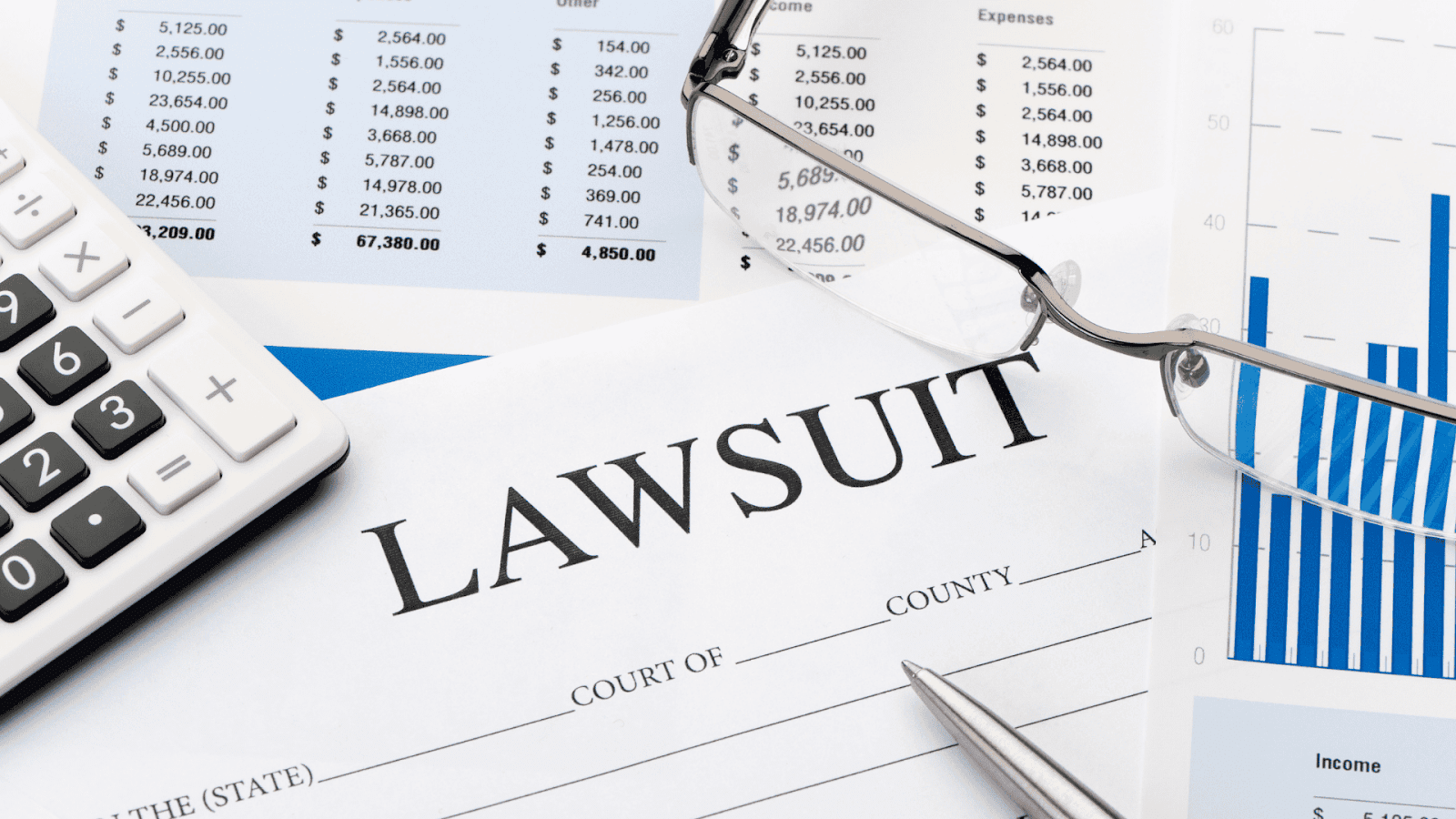
Facing a debt collection lawsuit can feel overwhelming, but it’s not a conviction. You won’t go to jail for unpaid consumer debt, and the law gives you rights to defend yourself.
The scale of the issue is significant: U.S. consumer debt now exceeds $17 trillion, and the Consumer Financial Protection Bureau reports that over 70 percent of debt collection lawsuits result in default judgments, often because defendants fail to respond.
By checking the claim, verifying the debt, and responding on time, you can protect your credit, finances, and legal standing.
This article provides a clear overview of how debt collection lawsuits work and outlines the practical steps you can take to protect your finances and credit standing.
A debt collection lawsuit begins when a creditor, debt buyer, or collection law firm files a complaint in civil court seeking a judgment for the amount they claim you owe. The lawsuit typically includes the amount of the debt, any interest or fees, and supporting documentation.
If the court grants a judgment, the plaintiff gains legal tools to collect, such as wage garnishment, bank account levies, or property liens. Judgments can also accrue post-judgment interest and appear in public records, potentially affecting background checks and future borrowing.
Read: Effective Bad Debt Recovery Strategies
Understanding these fundamentals will help you take timely, informed action. Let’s look next at the step-by-step timeline of a debt collection lawsuit and how to respond at each stage.

Responding quickly is the single most important move you can make. Below are the core actions:
Also Read: When to Hire a Debt Attorney
Taking these steps protects your rights and keeps collectors from winning by default. Next, we’ll look at what a judgment means for your finances and how to limit its impact.

If a court grants a judgment against you in a debt collection lawsuit, the effects go beyond just owing money. Here’s what you need to know, and how to minimize long-term damage.
Once a judgment is entered, creditors may seek to garnish your wages, meaning a part of your paycheck is legally withheld to satisfy the debt. According to U.S. federal law (the Consumer Credit Protection Act), for non-tax, non-child support debts, garnishment is capped at the lesser of 25% of your disposable earnings or the amount by which your earnings exceed 30 times the federal minimum wage.
Actionable tip: Calculate your disposable earnings (after mandatory deductions), and check what state laws may further limit garnishment. You might be able to protect more of your income depending on where you live.
Creditors holding a judgment may attempt to freeze or levy your bank account to get access to funds. Even accounts you assumed were safe may be targeted. Ensuring you know which accounts are subject to garnishment or “levy” can help in planning.
Judgments often carry interest after they’re entered, or even before, depending on the court’s orders. Over time, unpaid interest, court costs, and attorney fees can significantly increase what you owe.
Follow the steps below to minimize the damage if you face a lawsuit:
How can we prevent reaching this point in the first place? Let’s understand.

Avoiding a lawsuit starts long before a collector files a claim. The following strategies offer a structured way to stay ahead of problems and protect your finances.
Reach out to creditors at the first sign of difficulty. A realistic payment proposal, documented in writing, often stops collection activity before it escalates. Keep copies of all letters, emails, and call notes so you can prove what was agreed.
Nonprofit credit-counseling agencies can help you design a Debt Management Plan (DMP) that lowers interest and consolidates payments. Debt consolidation loans or negotiated settlements are also possible, but compare costs and watch for scams.
If you prefer a digital-first approach and flexible repayment options, consider reaching out to South East Client Services Inc. Our team focuses on simplifying complex debt issues and can help you craft a plan before problems escalate.
Check whether the debt is still within your state’s statute of limitations, collectors cannot lawfully sue once that period has expired. The Fair Debt Collection Practices Act (FDCPA) also prohibits harassment and deceptive tactics. Report violations to the CFPB or FTC.
Understand your state’s limits on wage garnishment and bank levies. Some income, such as Social Security or certain benefits, may be exempt. Planning your budget around these protections helps keep essentials, housing, utilities, food, secure.
Collectors frequently settle for less than the full balance, especially if you can pay a lump sum or set up a structured plan. Always get settlement terms confirmed in writing to avoid misunderstandings.
For severe or unmanageable debt, legal aid attorneys, accredited credit counselors, or, in some cases, bankruptcy professionals can explain options like Chapter 13 repayment plans that stop or prevent lawsuits.
Taking these steps early greatly reduces the chance of facing a court summons and keeps you in control of your financial future.
A debt collection lawsuit can feel overwhelming, but it’s far from the end of the road. With informed action, responding on time, negotiating when possible, and protecting exempt income, you can regain control of your finances and move toward stability.
If you’re ready to simplify the process and build a clear repayment plan, contact South East Client Services Inc. Their digital-first approach and flexible payment options help you resolve debt confidently and stay focused on your financial future.
No. Failing to pay a consumer debt is a civil matter, not a criminal offense. However, ignoring a court order related to a debt lawsuit, such as failing to appear at a hearing, can result in a warrant for your arrest.
If you don’t respond, the court will likely issue a default judgment. That allows the creditor to garnish wages, levy bank accounts, or place liens on property, and you’ll lose the opportunity to dispute the debt.
Judgments can remain enforceable for years, depending on state law, often 10 years or more, and may be renewed. While most judgments no longer appear directly on credit reports, they are public records and may surface in background checks.
Yes. Many collectors prefer a settlement to a drawn-out court process. You can negotiate a lump-sum or payment plan before or even after a judgment, but always confirm the agreement in writing.
Respond to the lawsuit and request proof of the debt. Collectors must show that the debt is valid, the amount is accurate, and they have the legal right to collect. If the statute of limitations has expired, that can also be a defense.